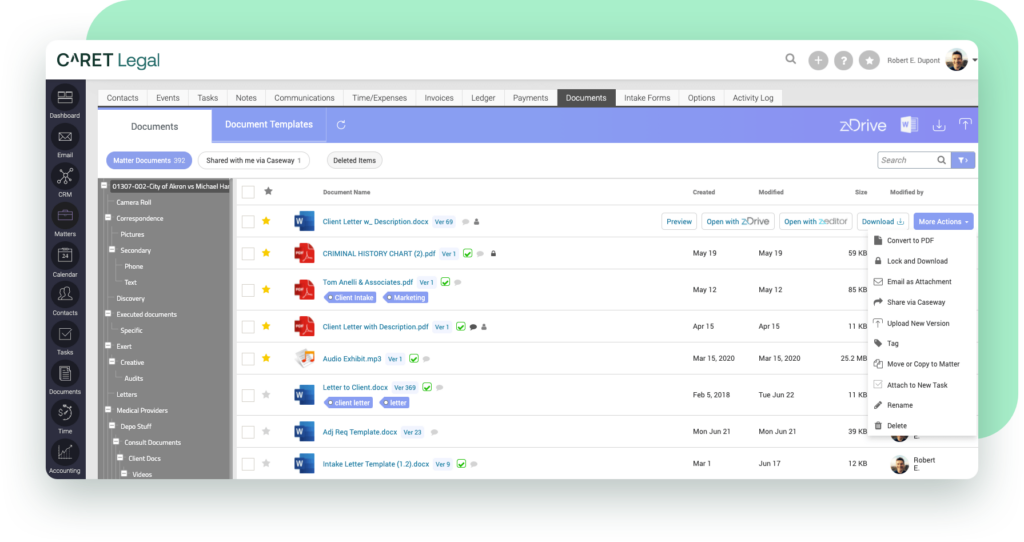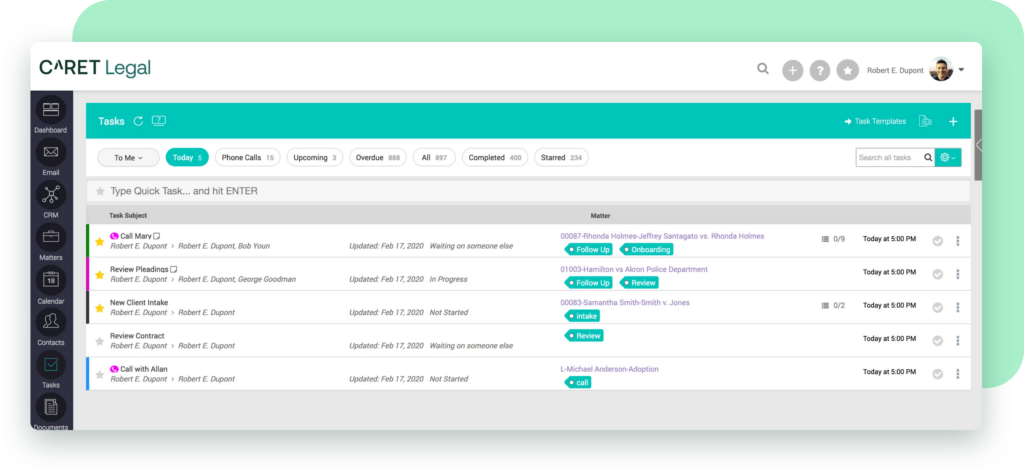Just like piecing together a complex puzzle, each piece representing a unique challenge, handling appellate cases requires careful attention and understanding.
Managing appellate cases can be an overwhelming task because of the unique complexities involved. Luckily there’s a solution that simplifies the process. An appellate case management system is a tool that can make a significant difference in a law firm’s operations, helping navigate these challenges effortlessly. Let’s explore these challenges in detail and see how an appellate case management system can provide effective solutions.
Understanding the Challenges in Managing Appellate Cases
Just like piecing together a complex puzzle, each piece representing a unique challenge, handling appellate cases requires careful attention and understanding.
Adhering to Procedural Rules
Appellate cases are governed by strict procedural rules. For instance, if you prepare a brief that exceeds the word limit set by the appellate court, it can result in the dismissal of the appeal. This is just one instance of the potential issues that can arise if these procedural rules are not carefully followed. Hence, meticulous attention to detail is crucial in managing appeals cases.
Reviewing Trial Court Proceedings
For complex cases, such as patent litigation, the task of reviewing trial court proceedings can be quite intensive. Law firms may need to go through thousands of pages of transcripts, exhibits, and trial court records to identify potential errors or issues for appeal. This process is not just time-consuming but also requires a sharp eye for detail to spot key information that could significantly impact the appeal.
Crafting an Appellate Brief
Writing an appellate brief is another significant challenge. For cases involving complex legal issues, the brief must clearly and concisely present the legal arguments in a persuasive manner that appeals to the appellate judges. This requires legal knowledge, writing skills, and a deep understanding of the issue at hand.
Coordinating with Various Parties
In a multi-party appeal case, managing communication with multiple clients, courts, and other parties can be a logistical challenge. Timely responses, careful record-keeping, and effective coordination are all crucial to ensure smooth communication and avoid any misunderstandings or oversights.
How an Appellate Case Management System Can Help
An appellate case management system is a purpose-built tool that addresses the complexities of managing appellate cases. It efficiently organizes tasks, boosts productivity, and reduces the potential for mistakes. Let’s look deeper into the specifics of this system and discuss how it can bring about improvements in your law firm.
Implementing an appellate case management system is a crucial step for any law firm handling appellate cases.
Automated Procedural Compliance
Case management systems can effectively track all procedural deadlines, ensuring that briefs are filed on time and in the correct format. This automated tracking can help prevent issues like the dismissal of an appeal due to an oversight in the word limit of a brief.
Document Management
Cloud-based systems serve as a comprehensive repository for all case-related documents. This allows for better organization and easy access to these documents, saving valuable time and effort. For example, in a patent litigation case, the system would neatly categorize and store numerous documents, making it easier for the team to review and identify potential errors.

Efficiently create, manage, and store documents associated with each case/matter
Assistance in Appellate Brief Writing
Some systems, like CARET Legal, offer support in the form of templates and legal research tools to assist in crafting compelling arguments for complex cases. These resources can be invaluable in guiding the writing process and ensuring that the final brief is clear, concise, and persuasive.
Efficient Communication Management
The appeals case management system collaboration tools can efficiently manage multiple communication threads. This feature is particularly useful in multi-party appeal cases, as it ensures that no important updates are overlooked and maintains smooth communication and coordination amongst all parties.
Extending the Benefits with Civil Litigation Practice Management Software
While an appellate case management system is invaluable for managing appellate cases, civil litigation practice management software like CARET Legal can extend these benefits to the entire law firm.
Automated Tasks
CARET Legal automates routine tasks such as time tracking and billing. Automation allows your team to focus on more critical tasks, ensuring that routine administrative tasks don’t take up valuable time that could be better spent on casework.

Increase consistency, accountability, organization and efficiency for everyone at your firm
Document Management
CARET Legal’s robust document management capabilities extend to all firm-related documents, ensuring an organized and efficient workspace. This means all important documents, not just those related to specific cases, can be easily located when needed.
Insights and Collaboration
CARET Legal’s powerful analytics provide valuable insights into the firm’s performance, which can be used to make strategic decisions for the firm. Additionally, it fosters better collaboration among team members by providing a shared platform for communication and information sharing.
Looking for a legal case management platform?
Learn more about selecting the best solution for your firm.
A Critical Step
Implementing an appellate case management system is a crucial step for any law firm handling appellate cases. It simplifies the management of these complex cases, ensures efficiency, reduces the risk of errors, and enhances the overall effectiveness of the firm.
Schedule a demo of CARET Legal today and discover firsthand how it can revolutionize your law firm’s operations!
